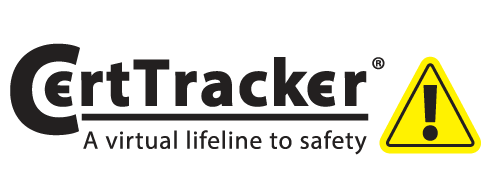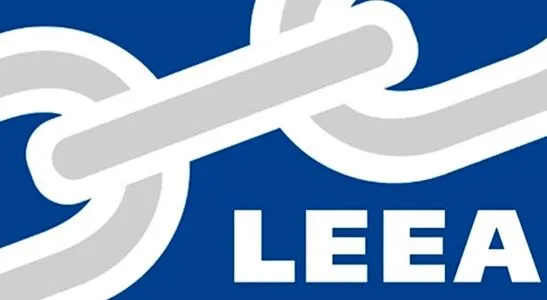Importance of Preventative Equipment Maintenance
Importance of Preventative Equipment Maintenance
Underestimating the importance of equipment maintenance could be taking a toll on your bottom line. The saying “if it ain’t broke, don’t fix it” is too often the way some view equipment maintenance. Why pay for service on your equipment if there’s nothing wrong with it? Believe it or not, there are several reasons. All equipment is an investment — one that requires time and money to keep in optimal shape.
BENEFITS OF MAINTENANCE
Preventative equipment maintenance is key to extending equipment life and ultimately saving you time and money. While your perception may be that paying for preventative maintenance is unnecessary spending, the reality is that without it, you’re often left with more expensive repairs. At Hercules SLR we believe in the importance of preventative maintenance, here are just some of the reasons why:
KEEP EQUIPMENT RUNNING EFFICIENTLY
When equipment runs efficiently, work get done on schedule, keeping that optimal condition is key to maintaining that level of equipment efficiency. If maintenance is overlooked, efficiency suffers and ultimately, your bottom line suffers as a result.
SMALL PROBLEMS BECOME BIGGER PROBLEMS OVER TIME
We’ve all seen it; something isn’t working exactly the way it used to, but it isn’t affecting the job, so we continue, sometimes even adjusting how we use the piece of equipment to keep things moving. While it may seem like this is the most efficient way to get the job done in the short term, it could cause you major problems long-term.
THE BIGGER THE PROBLEM, THE MORE THE EXPENSE
While it may seem like it makes no sense to spend the time and money to have your equipment inspected or repaired when you’re able to work around it, the reality is that waiting, is going to cost you even more. Bigger, more complex repairs come with a bigger price tag. Think of more than parts? yes, a more complex problem will likely come with having to replace more and/or larger parts that are expensive, but it doesn’t end there.
Larger problems often translate to more downtime, the more downtime means you’re suddenly behind schedule and/or unable to take on a new project. Employees scheduled to use that equipment need paying, so now you are paying for work that cannot be done during the downtime.
Don’t wait for the bigger problem — invest in the small one.
REDUCE INJURIES AND FATALITIES
Within the construction industry, 17% of fatal construction accidents are due to contact with objects and equipment. If your equipment isn’t being serviced on a regular basis, there’s a chance it isn’t working properly. If it isn’t working properly, you’re increasing your chances of workplace injury or death because of equipment failure.
Regardless of how much safety training you or your employees have been through, they don’t have control over equipment failure. Of course, there will always be unexpected breakdowns, but you can minimize them through being proactive about your equipment maintenance.
Workplace injuries and fatalities are tragic and expensive. Company morale suffers, and so does your bottom line. One of the benefits of maintenance doubles as a proactive step in reducing the number of injuries or fatalities you have on site. You can’t put a price on your team’s safety in the field.

Service records and documentation answer many of these questions and put many of the concerns of the unknown to rest. At Hercules SLR all our customers have access to CertTracker®, our FREE online equipment management system.
CertTracker® delivers innovative solutions that streamline any inspection and maintenance process. Mobile computing, Radio Frequency (RFID) tagging and internet applications provide you with enhanced accuracy and operational efficiency. Not to mention eliminating most of the paperwork.
![]()
![]()
TRAIN OPERATORS AND TECHNICIANS
In conjunction with technology, there is no substitution for the human touch. It takes a trained operator to understand the problem and a trained technician to know how to fix it or to alert someone that it needs repairing. Educating your equipment operators and any technicians you have on staff is key to extending the life of your equipment, as they will be sure that small problems don’t turn in to big ones.
If training isn’t feasible, there needs to be a summary of best practices and an operation manual in place so you can ensure operators are using the equipment the way it was meant to be used. Always respect all weight limits and guidelines. An untrained equipment operator could unintentionally cause costly repairs, so make sure the best practices and expectations are outlined clearly and regularly.
SET AND STICK TO A MAINTENANCE SCHEDULE
Every piece of equipment is different. They all have their own intricacies and need a maintenance and repair schedule to match. Rather than waiting for parts to cause a problem, replace them when they are scheduled to be replaced.
How do you know when that is? The piece of equipment will have an original equipment manufacturer (OEM) maintenance recommendation. Commit to it. It may seem like by being proactive you’re attempting to fix something that isn’t broken, but trust us, neglecting to do this will result in expensive repairs.
CONDUCT REGULAR INSPECTIONS
No, inspections are not the same thing as maintenance schedules. equipment should be inspected every time it’s used. Trained operators should know what to look and listen for to ensure equipment is working properly. Checking for simple things, like signs of wear on equipment, can go a long way. The reality is equipment is often used with vibration, high temperatures and friction? all of which contribute to the wear and tear. Add age to the mix, and you have a recipe for deterioration.
This happens with all equipment, and the key to extending equipment life is to make sure you do something as simple as adding an operator visual inspection to your equipment use requirements. Noticing slight wear and tear may seem small, but these things can be identified through a visual inspection and fixed before they cause a larger problem.
HOW QUALIFIED ARE THE TECHNICIANS INSPECTING YOUR GEAR?
When it comes to inspections, testing, repairs and certification, you need to know that you and your equipment are in safe and experienced hands.
The Lifting Equipment Engineers Association (LEEA) is established across the globe as the leading representative body for all those involved in the lifting industry worldwide. They provide third party training and examination for technicians in the lifting equipment industry.
At Hercules our inspectors have undergone this internationally recognized training and some hold multiple diplomas.
OUR TECHNICIANS ARE:
- Familiar with the most recent technology in the lifting industry
- Skilled and confident in their inspection skills
- Constantly learning and expanding their knowledge
- LEEA Registered Technicians

——————————————————————————————————————————————
The Hercules Group of Companies encompasses a wide portfolio of products and services across 7 diverse companies.


